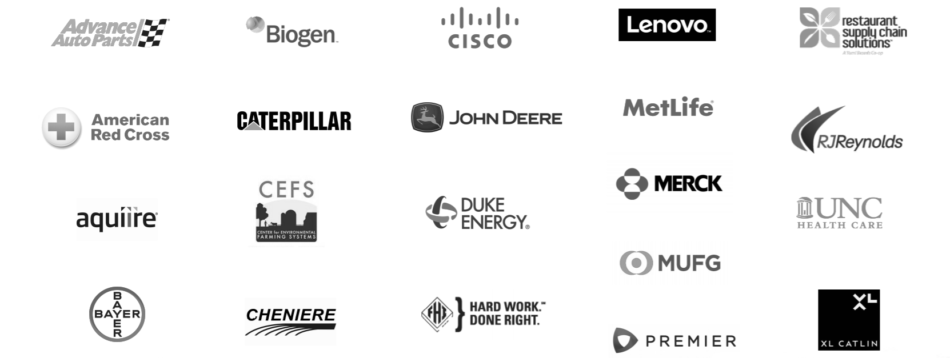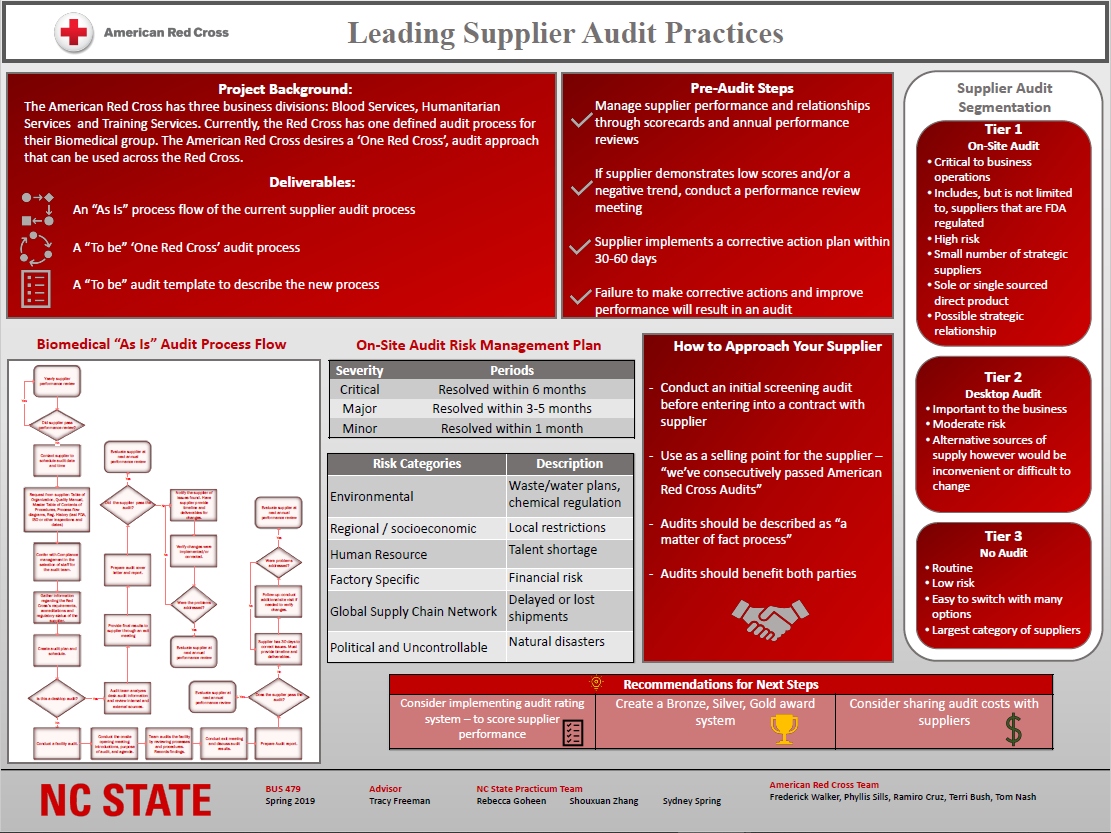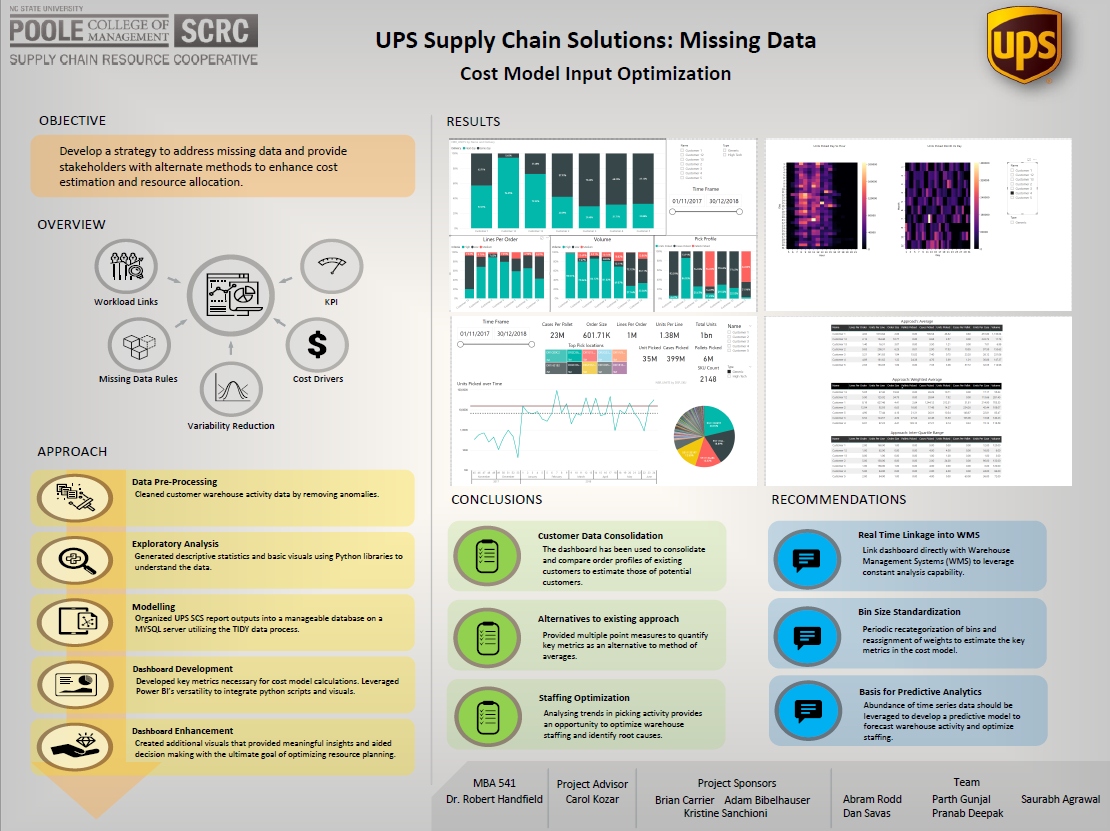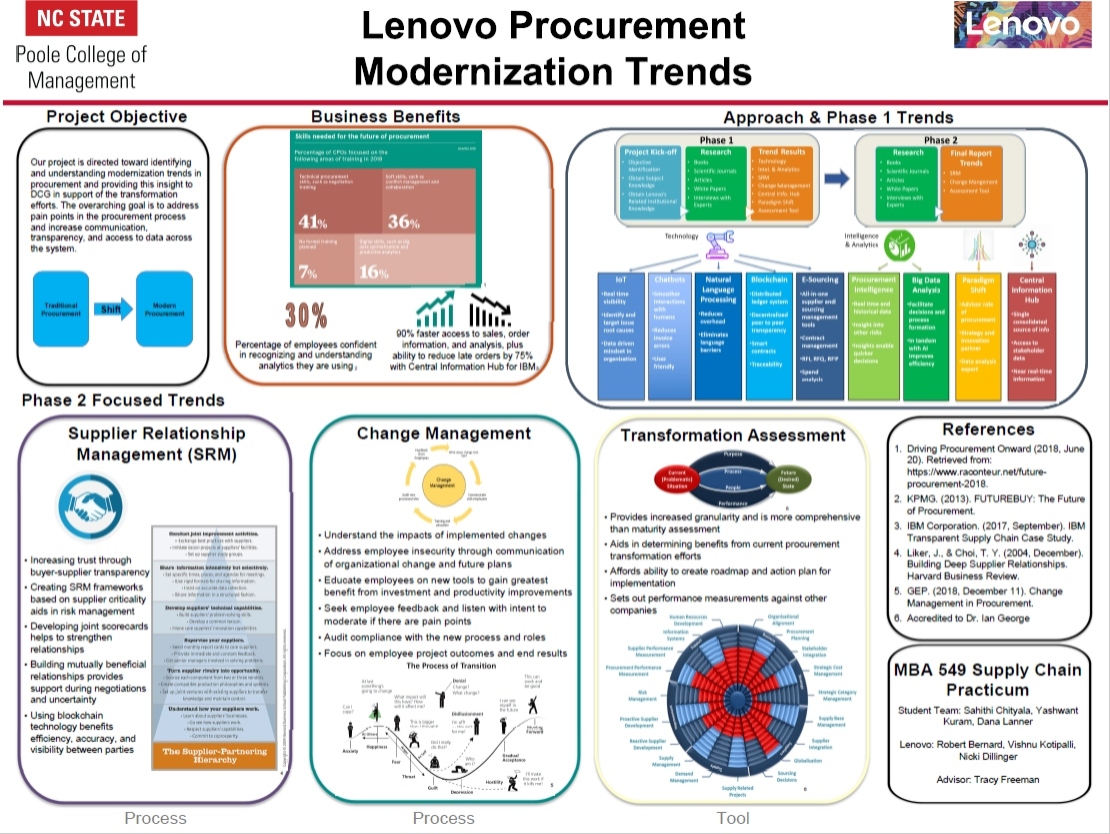Practicum Experience
Each semester our students participate in a practicum experience for credit, where they are executing our University motto "Think and Do". These courses utilize project management tools and techniques to guide and effectively manage the project and students apply a range of techniques to analyze information and develop recommendations for improvement to deliver the agreed scope.
Submissions for Fall 2025 are now open! The registration window is from April 1 - June 30.
For our students, regular interaction with real-world companies is key. One of the most important ways they receive that interaction is through our practicum courses, which enhance the learning experiences of both our undergraduate and Jenkins MBA supply chain students. In these courses, students apply their classroom knowledge to solve real-world problems for companies, which allows the students to come away with an experiential understanding of supply chain management. The projects cover virtually all aspects of supply chain management, including procurement, inventory management, process mapping and design, and forecasting. Analytics are key, as students learn how to approach complicated situations in the supply chain process and make decisions for success.
For each practicum course, students work throughout the semester in small teams, culminating with a presentation of their key findings and recommendations at the end of the year to key executives at the sponsoring company. These recommendations frequently provide real cost reduction and process-improvement benefits, and project sponsors gain working relationships with students and an inside track to future recruits.

“John Deere has leveraged multiple project teams to benchmark marketplace cost structures, define optimal product line selection and document annual and hourly costs associated with those product selections, optimize replenishment processes and inventory levels across multiple points in the value chain and document and define best practices for measuring direct material cost over the life cycle of a product. Working with our project advisors, the teams developed tools, reports, and recommendations that have been deployed and yielded significant results for our organization, our product channels, and our end customers.”
Mike Schobert
Business Relationship Manager – Tractor Platform
John Deere
The Process
Project Roles
Once an organization has identified a project for which they would like to submit a proposal, they are responsible for identifying and providing an executive project sponsor and project manager for their project. These roles must be identified during the proposal submission process.
In addition to working with the students, the executive project sponsor and project manager work with one of the SCRC’s executive advisors, who serve as a liaison between the sponsor company and the student team.
Project Selection
After a proposal is submitted, there is no guarantee the project will be selected. Projects are selected based on the number of submissions received and the proposal’s fit with the educational goals of the supply chain course in which the students are enrolled. Selected projects will be assigned to teams from one of our supply chain courses.
It is helpful, but not required, for organizations to have experience working with universities and specifically with sponsoring student projects. The main criteria used to select projects include:
- Educational value
- Likelihood of success
- Level of challenge and complexity
- Clarity of project goals
- Sponsor commitment
The number of projects we can conduct is currently limited to the number of students enrolled in each practicum course. We aim to select a variety of projects each semester and typically evaluate over 100 proposals annually. A viable proposal not selected in the current round can be placed in a queue for future assignment if desired. We continually look for opportunities to work with new sponsors and in new industry segments.
Team Assignments
Once a project is selected, students prioritize what projects they are interested in and are assigned to teams based on their preference, skills, experience, and compatibility, to achieve the necessary balance given the needs of the project. Team members assign specific roles for themselves.
Confidentiality
Confidentiality is a key element of how the projects are conducted. Unlike a master’s thesis, which is published, practicum projects do not have a public disclosure requirement. Rather, only members of the project team have access to their sponsor’s information. Sponsors do not provide personally identifiable information (PII), and will only be expected to share information in a manner that is consistent with their internal governance rules.
Each sponsor is required to provide the non-disclosure agreement (NDA) to be signed by the student team. Because students are not employees of the university, they must individually consent to the sponsor’s NDA before working on the project.
Proposal Submission
When completing the proposal submission process, you will be asked to provide the following information:
- Project description
- Project scope
- Opportunity statement
- Key deliverables
- Project environment, team location, and preferred meeting locations
- Identification of the executive project sponsor and project manager
Proposals are submitted online (see below) and accepted before the beginning of each semester. The SCRC is always ready to begin a dialogue with a prospective sponsor. There are two formal reviews with submission deadlines. Once a proposal receives the green light, it is placed in the queue for the next round of project kick-offs. We encourage organizations to submit more than one proposal.
Timeline
- Fall 2025 Proposals open on April 1 and close on June 30.
Submit a Project Proposal
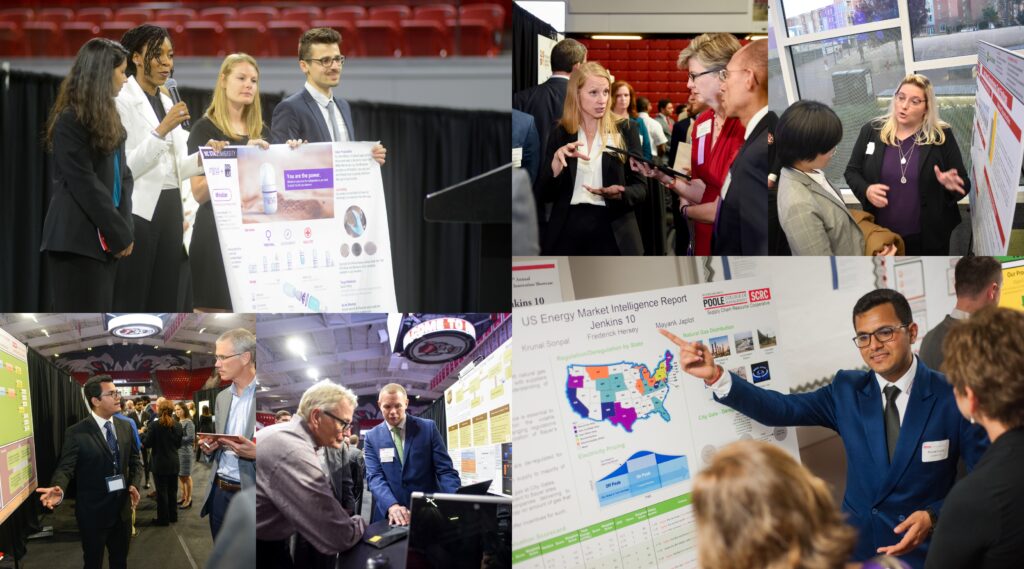
Companies We’ve Worked With
